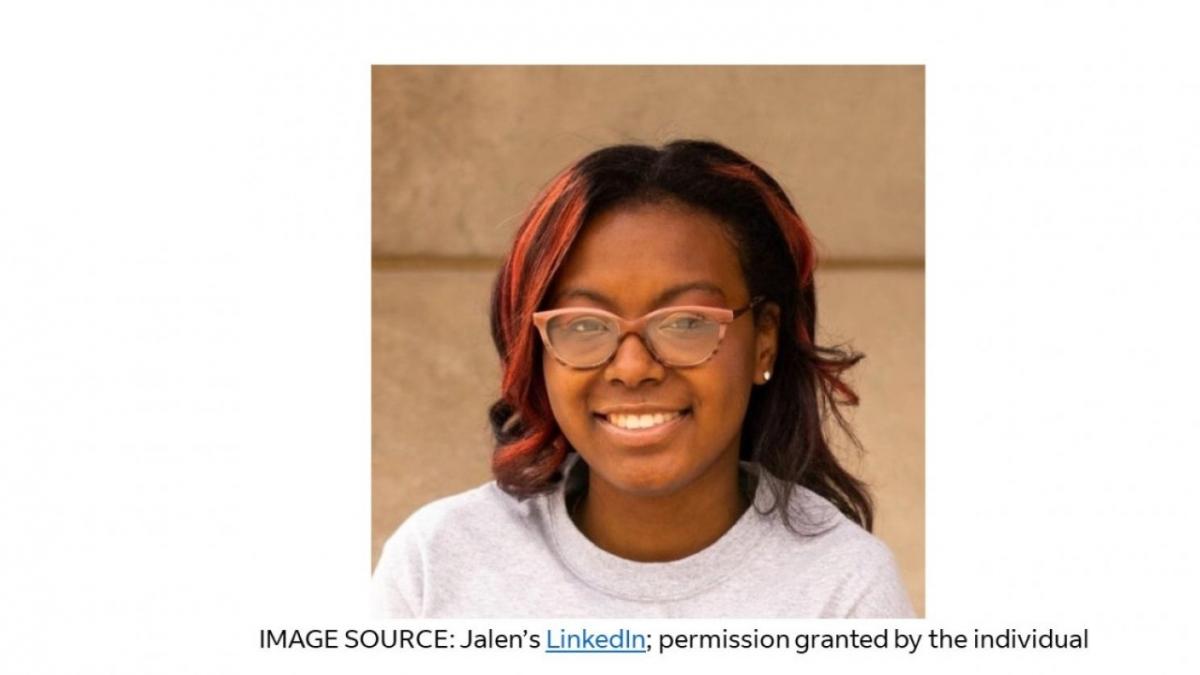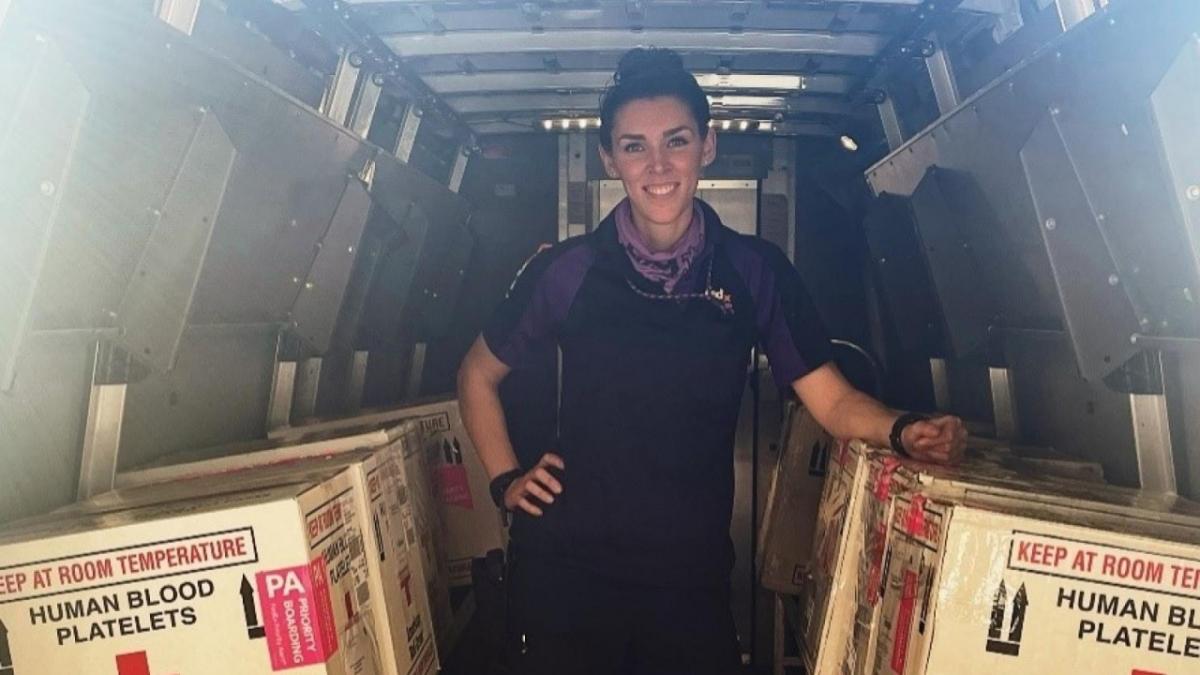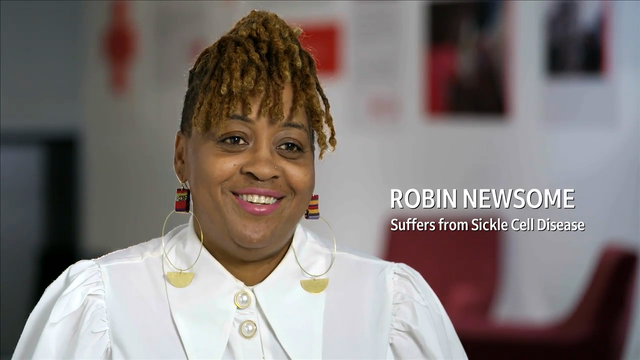FedEx and Red Cross Join to Increase Support for Patients with Sickle Cell
For as long as she can remember, Jalen Matthews has received regular blood transfusions to treat sickle cell disease—an inherited condition that limits her red blood cells from carrying enough oxygen throughout her body. Though the 24-year-old was diagnosed with the disease at birth, it was not until she suffered a stroke caused by a blood clot at age 11 that blood transfusions became a lifeline to managing her symptoms.
Without treatment, the stiff, crescent-shaped red blood cells of patients with sickle cell disease can get stuck in blood vessels and cause painful complications, including organ damage and stroke. Because the disease has no cure, Matthews is diligent with her transfusions, relying on the healthy red blood cells she receives every seven weeks to ensure her blood flows freely.
But when the pandemic hit, Matthews—and many patients with sickle cell like her—faced the threat of missing treatment for the very first time. According to the Red Cross, the organization has faced ongoing challenges in maintaining a stable blood supply since March 2020, which has led to periodic shortages. Now, amid growing concerns of the Delta variant’s spread, the organization could face further challenges in collecting inventory of lifesaving blood as nationwide demand continues to mount.
“My doctor called and said that there was a national blood shortage and that I wouldn’t be able to get my next transfusion,” Matthews said. “At first, I was nervous and scared because I’d never missed a transfusion. I had been managing the disease pretty well, but that was with the transfusions, so I couldn’t imagine what I would have to go through without them.”
In the video posted with this article you will meet Robin who, like Jalen, suffers from Sickle Cell Disease. You will also learn more about how FedEx and the American Red Cross are teaming up to support patients with Sickle Cell Disease.
Addressing a shortage that disproportionately affects communities of color
The rise in COVID-19 cases due to the Delta variant and an active hurricane season could further impact the Red Cross’s ability to collect donations in the weeks and months to come, which for sickle cell patients exacerbates the already difficult task of identifying close blood type matches between donor and recipient—an essential element of reducing complications from transfusion therapy. To complicate things further, sickle cell disease more commonly exists in individuals of African descent, and those who receive frequent transfusions rely on donations from individuals of the same race or a similar ethnicity.
While Black Americans make up approximately 13% of the U.S. population, they comprise less than 4% of the Red Cross’s current blood donor base – a number the Red Cross is working to increase to help the country’s one out of every 365 Black patients born with the disease experience improved health outcomes. High COVID-19 infection rates, hospitalization and death rates1 within Black communities, and a well-founded history of distrust many feel toward medical establishment23, however, have only worsened the existing barriers keeping Black individuals from donating blood. Additionally, drives at educational institutions and businesses, where most donors give, have increasingly been cancelled.
Partnering together to increase support for sickle cell patients
Understanding the great need of sickle cell patients, the Red Cross launched a national public sickle cell initiative in partnership with national and local community organizations, and corporate sponsors like FedEx. The initiative’s goal is to increase the number of Black donors and support the health of local communities across the U.S.—a goal its longtime collaborator FedEx felt compelled and equipped to support.
While FedEx has supported the Red Cross over the last 20 years through disaster relief efforts and blood donation distributions, the company stepped in to assist this particular initiative through its FedEx Cares 50 by 50 campaign by providing additional services to transport blood donations while increasing its monetary donations. Together, these contributions have totaled more than $1 million in support since 2019, while directly helping many individuals suffering from sickle cell disease across the U.S.
Margo Westcott, a FedEx Express courier based in Henrietta, N.Y., is a local expression of this support. She visits the area’s Red Cross facility regularly as a last stop on her route, picking up anywhere from five to 30 boxes of blood donations a day. She works quickly yet carefully to deliver them to the FedEx distribution center knowing that blood has a short shelf life.
“I think FedEx is a great partner for the American Red Cross because of how quickly and efficiently we work in getting these packages to their designated areas,” said Westcott, who is a blood donor herself. “We take pride in being part of that dispersal of blood because we know how important it is to for people to get that resource.”
Once the packages leave Westcott’s hands, FedEx uses its Priority Overnight service to ensure donations arrive safely at healthcare centers around the world.
The company’s efforts do not go unnoticed by patients like Matthews who recognize that the hard work and dedication of teams at FedEx and the Red Cross have helped them live life fully. After a week of uncertainty, blood did become available for Matthews the day before her appointment, but she knows not all patients have been as fortunate throughout the pandemic.
“We’ve already gone through such scary times as it is, so I don’t want anybody else to have to go through that stress of wondering if they can get treatment, because that treatment could be the one thing that saves their lives,” she said.
Matthews, who recently earned a master’s degree in exercise science, accepted a position at the American Red Cross as a Call Center Caseworker this summer. In this role she continues to encourage others to get involved in donating blood: “I’m grateful to share my story because that’s what I’m passionate about— continuing to advocate for blood donations.”
To learn how you can help save lives by donating blood, visit www.redcross.org.
1 Centers for Disease Control and Prevention (CDC): Disparities in COVID-19-Associated Hospitalizations (September 2021)
2 Commonwealth Fund: Understanding and Ameliorating Medical Mistrust Among Black Americans (January 2021)
3 The New England Journal of Medicine: Beyond Tuskegee – Vaccine Distrust and Everyday Racism (January 2021)




